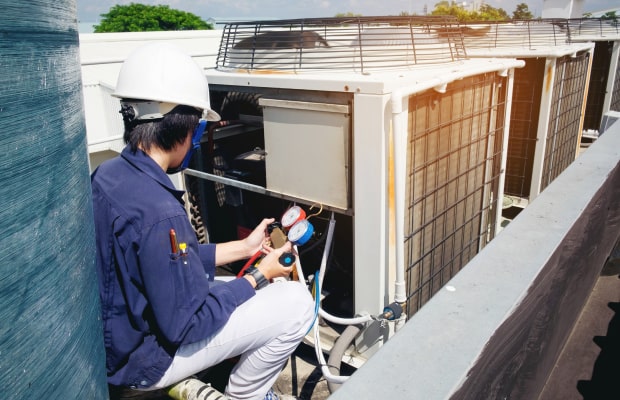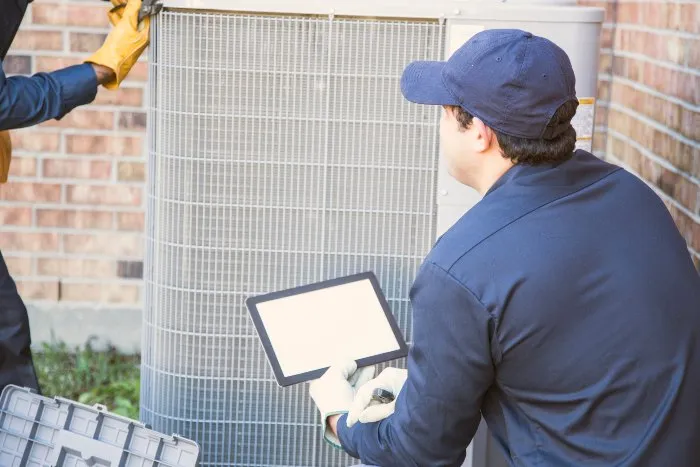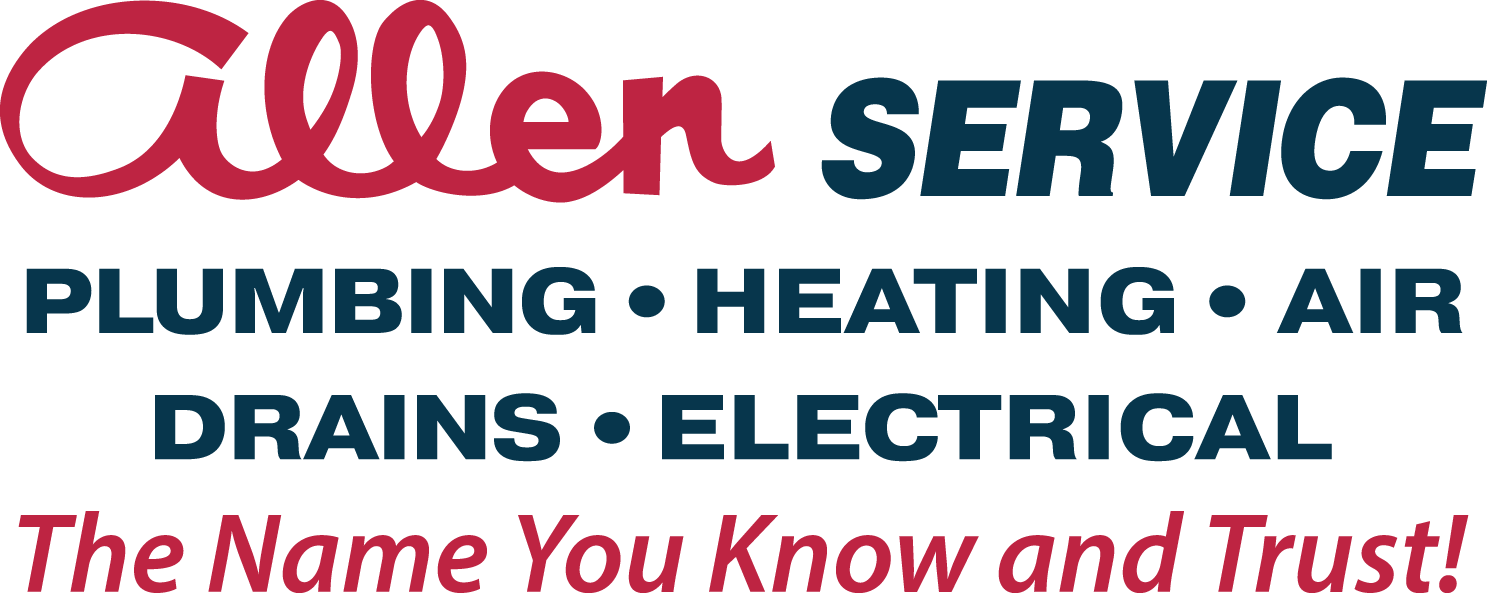fort collins hvac contractors
Questions to Ask Your HVAC Contractor
Buy an A/C get the Furnace for FREE
New HVAC System. Call for details.When your furnace breaks down on a cold Fort Collins morning or your air conditioner quits during those hot summer afternoons, finding the right HVAC contractor quickly becomes your top priority. We understand that feeling of urgency – you need your home comfortable again, and you need it done right. But rushing into hiring the first contractor who answers the phone can lead to bigger problems than a broken HVAC system.
Over our years serving Fort Collins families, we've heard too many stories about homeowners who hired contractors without asking the right questions upfront. They ended up with poor workmanship, surprise charges, or systems that failed again within months. These situations are completely preventable when you know what questions to ask before any work begins.
The truth is, a good HVAC contractor should welcome your questions – we actually appreciate when customers ask detailed questions because it shows they care about getting quality work done. When you ask the right questions, you protect yourself from unreliable contractors and find professionals who will treat your home with the respect it deserves. Let's walk through the essential questions that will help you make this important decision with confidence.
Licensing and Insurance Questions That Protect You
Before any HVAC contractor steps foot in your Fort Collins home, you need to verify they're properly licensed and insured. In Colorado, HVAC contractors must hold a valid license from the state, and this isn't just red tape – it means they've met specific training requirements and follow industry standards. Always ask to see their license number and verify it's current through the Colorado Department of Regulatory Agencies website.
Insurance is equally important and protects both you and the contractor. A reputable HVAC company carries both general liability insurance and workers' compensation coverage. General liability protects your property if something gets damaged during the work, while workers' comp covers any injuries that might happen on your property. We always carry proof of both and are happy to provide certificates when requested.
Essential documents to request:
- Current Colorado HVAC license number
- General liability insurance certificate
- Workers' compensation insurance proof
- Verification that all coverage is current and adequate
Don't just take their word for it – ask to see the actual insurance certificates and make sure they're current. Some contractors try to get by with expired or inadequate coverage, which could leave you liable if something goes wrong. A trustworthy contractor will have no problem providing this documentation immediately.
Experience and Expertise Questions
Experience matters, especially when it comes to Fort Collins' unique climate challenges. Ask how long the contractor has been serving the local area – someone familiar with our altitude, temperature swings, and seasonal demands will better understand what your home needs. We've found that contractors with local experience can often spot potential issues that out-of-town companies might miss.
Find out about their specific experience with your type of system or the brand you're considering. HVAC technology changes rapidly, and you want technicians who stay current with training and certifications. Ask about their team's qualifications and whether they receive ongoing education. The best contractors invest in their technicians' skills because it leads to better results for customers.
Key qualifications to verify:
- Years of experience in Fort Collins area
- Specific training on your equipment brand
- Current technician certifications
- Ongoing education and training programs
- EPA certification for refrigerant handling
Request references from recent Fort Collins customers, particularly those with similar projects or home types. A confident contractor will provide these without hesitation. When you contact references, ask about the quality of work, cleanliness, communication, and whether they'd hire the company again. These conversations often reveal insights you won't get from online reviews alone.
Pricing and Estimate Questions to Avoid Surprises
Transparent pricing starts with a detailed, written estimate. Any reputable HVAC contractor should provide this at no charge for significant work like system replacements or major repairs. The estimate should break down labor costs, equipment costs, permits if needed, and any additional fees. Be wary of contractors who only give verbal estimates or seem reluctant to put numbers in writing.
Ask specifically about what's included in their pricing and what might cost extra. Some contractors quote low base prices but add charges for basic services like hauling away old equipment, standard permits, or even showing up for the appointment. We believe in straightforward pricing where you know exactly what you're paying for upfront.
What should be included in estimates:
- Labor and equipment costs
- Permit fees if required
- Cleanup and old equipment removal
- Any potential additional charges
- Timeline for completion
- Payment schedule details
Don't automatically choose the lowest bid without understanding why it's lower. Sometimes contractors cut corners on materials, skip important steps, or add surprise charges later. Ask about financing options if you need them, and make sure you understand the payment schedule. Most legitimate contractors require minimal money upfront and don't expect full payment until the work is completed to your satisfaction.

Timeline and Availability Questions
Understanding the project timeline helps you plan and sets realistic expectations. Ask when the contractor can start work and how long they expect the project to take. For Fort Collins homeowners, timing can be especially important – you don't want to be without heat during a cold snap or without air conditioning during a heat wave.
Find out about their availability for emergency services if you're dealing with a complete system failure. Some contractors offer 24/7 emergency service, while others only work during business hours. If you have an older system, ask about their typical response time for urgent repairs and whether they stock common parts for your equipment.
Weather can impact HVAC work, especially outdoor installations. Ask how they handle weather delays and whether timeline changes affect pricing. A good contractor will have contingency plans and will keep you informed if delays occur. They should also be upfront about busy seasons when scheduling might take longer.
Quality Assurance and Warranty Questions
Warranties are your protection against defective equipment and poor workmanship. Ask about both manufacturer warranties on equipment and the contractor's warranty on labor. Different manufacturers offer different warranty terms, and some contractors provide extended labor warranties that go beyond the standard coverage.
Find out exactly what their warranty covers and what might void it. Some warranties require regular maintenance by the installing contractor, while others allow you to use any qualified technician. Understanding these details upfront prevents disputes later if you need warranty service.
Ask about their callback policy if something isn't working right after installation. Reputable contractors stand behind their work and will return to address any issues without additional charges if the problem is related to their installation. We believe that warranty service should be as professional and prompt as the original installation.
Quality Assurance and Warranty Questions
Warranties are your protection against defective equipment and poor workmanship. Ask about both manufacturer warranties on equipment and the contractor's warranty on labor. Different manufacturers offer different warranty terms, and some contractors provide extended labor warranties that go beyond the standard coverage.
Find out exactly what their warranty covers and what might void it. Some warranties require regular maintenance by the installing contractor, while others allow you to use any qualified technician. Understanding these details upfront prevents disputes later if you need warranty service.
Ask about their callback policy if something isn't working right after installation. Reputable contractors stand behind their work and will return to address any issues without additional charges if the problem is related to their installation. We believe that warranty service should be as professional and prompt as the original installation.

Red Flags: Questions That Reveal Unreliable Contractors
Certain responses to your questions should raise immediate red flags. If a contractor can't provide current licensing information, pressures you to sign immediately, or quotes a price significantly lower than other estimates without explanation, consider looking elsewhere. Door-to-door contractors or those who just "happened to be in the neighborhood" often use high-pressure tactics and questionable business practices.
Warning signs to watch for:
- Can't provide licensing or insurance documentation
- Demands large upfront payments or cash only
- Offers estimates significantly lower than others without explanation
- Uses high-pressure sales tactics or demands immediate signing
- Can't provide local references or seems evasive about experience
- Shows up uninvited or claims to be "in the neighborhood"
Be cautious of contractors who demand large upfront payments or want full payment before starting work. Legitimate contractors typically require only a small deposit and expect final payment upon completion. Also watch out for contractors who can't provide local references or seem evasive when you ask specific questions about their experience and qualifications.
Cash-only deals or contractors who don't provide written contracts are major warning signs. Professional HVAC companies operate transparently with proper documentation, accepted payment methods, and clear contracts that protect both parties. Trust your instincts – if something feels off during your initial conversations, it's better to find another contractor.
Communication and Process Questions
Good communication throughout your project makes everything smoother and less stressful. Ask how the contractor will keep you updated on progress, any delays, or unexpected issues that arise. We believe homeowners should never be left wondering what's happening with their project or when workers will arrive.
Find out about their cleanup practices and how they protect your home during work. HVAC installation can be messy, but professional contractors take steps to minimize disruption and thoroughly clean up afterward. Ask about protective coverings for floors and furniture, and whether cleanup is included in their pricing.
What good contractors provide:
- Regular updates on project progress
- Protection for floors, furniture, and belongings
- Thorough cleanup after each work day
- Clear communication about any delays or issues
- Designated point of contact throughout the project
Establish who your main point of contact will be throughout the project. Having one person to call with questions or concerns streamlines communication and ensures nothing falls through the cracks. This person should be knowledgeable about your project and authorized to make decisions if issues arise.
Maintenance and Follow-Up Questions
Your relationship with an HVAC contractor shouldn't end when the installation is complete. Ask about their maintenance services and how often they recommend servicing your new system. Regular maintenance extends equipment life and maintains efficiency, but you want to understand the costs and what's included upfront.
Find out if they provide maintenance reminders or have service plans that include regular tune-ups. Some contractors offer priority scheduling and discounted service calls for maintenance customers. These programs can provide peace of mind and help you stay on top of system care without having to remember scheduling.
Ask about their policy for follow-up visits and ongoing support. A good contractor should check back to ensure you're satisfied with the work and answer any questions about operating your new system. They should also be available for future service needs and stand ready to honor any warranties they've provided.
Conclusion
Asking the right questions to your HVAC contractor before hiring protects your home, your budget, and your family's comfort. The contractors worth hiring will appreciate your thoroughness and answer these questions confidently and completely. Don't feel embarrassed about asking detailed questions – this is a significant investment in your home, and you deserve to feel confident about your choice.
Remember that the lowest price isn't always the best value, and the most expensive option isn't automatically the highest quality. Focus on finding a Fort Collins residential HVAC contractor who demonstrates professionalism, transparency, and genuine concern for your needs.
